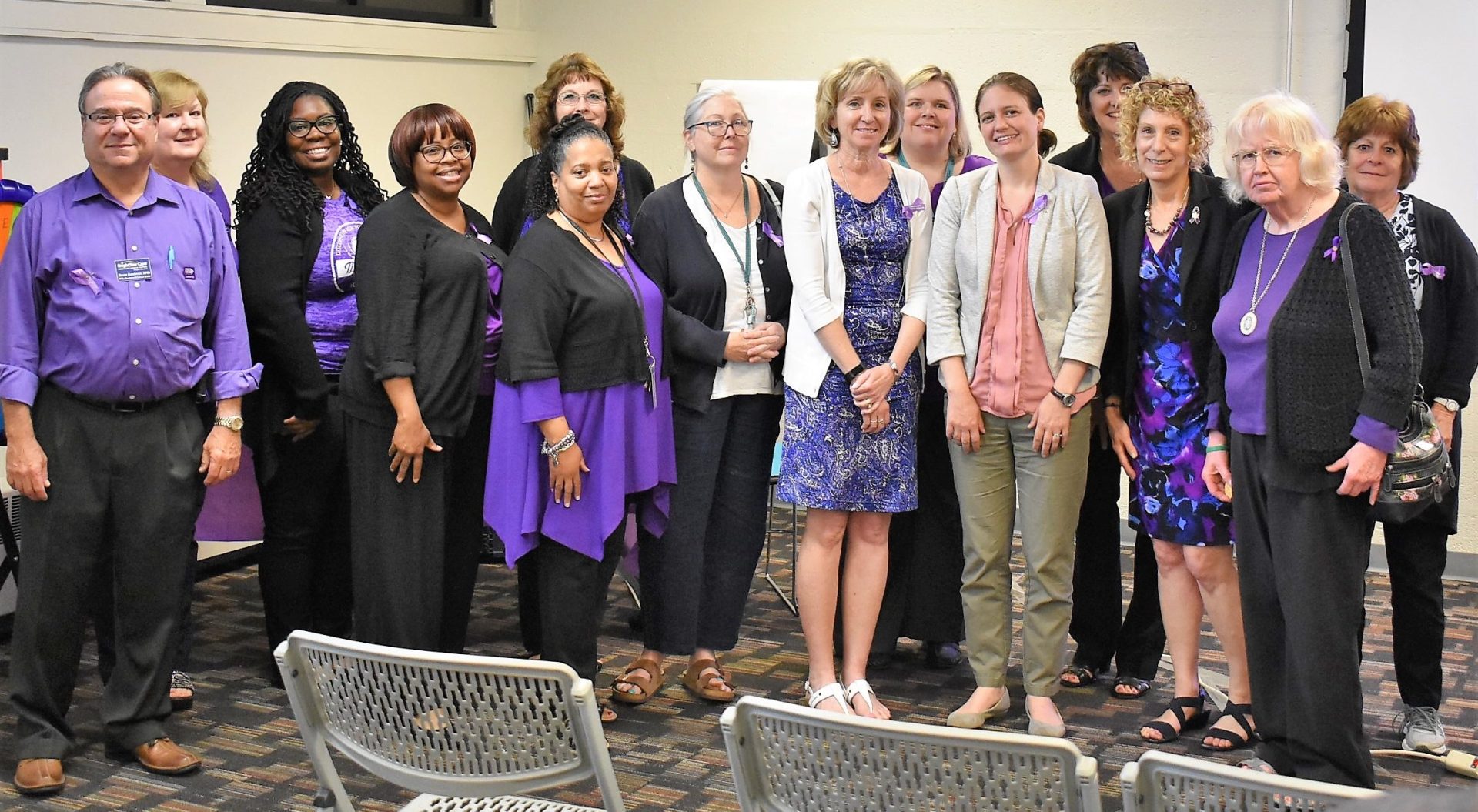On Friday, June 14, 2019, the Pro Bono Counseling Project participated in a World Elder Abuse Awareness Day event at the Baltimore County Public Library in Randallstown, MD. Along with about a dozen other community and state-wide organizations present, PBCP representatives met with clinicians, human service professionals, potential clients, and community members who all share in the concern and care for Maryland seniors and their caregivers. We were honored also to speak about PBCP’s mission with legislators from the Maryland State House, Delegate Michele Guyton (District 42B) and Delegate Benjamin Brooks (District 10). PCBP has seven special programs, each one focused on serving a different group of people and/or mental health concern. Two of these programs in particular—Caring for Caregivers and Victims of Violence—overlap especially with issues surrounding Elder Abuse. Attending this event was an excellent opportunity for us to connect with caregivers and the organizations and associations that support them, as well as provide information about our services to victims of abuse.
Throughout the day, several interactive stations featured simulations, products, and information regarding important issues affecting seniors— such as Nutrition, Malnutrition & Self-Neglect, Assistive Technology, and Fall Prevention. The keynote speaker at this event, Barbara Korenblit, LCSW-C, of CHANA’s Stop Abuse oF Elders (SAFE) program, led an informative and solution-oriented discussion on elder abuse. She shared stories and statistics that further illuminate the fact that elder abuse is considered an epidemic at the federal level. Some key points in her presentation include that, while there are many factors that make seniors particularly susceptible to abuse, social isolation and feelings of loneliness and alienation seem to be among the most universal. For example, social isolation can be more dangerous for one’s health than tobacco. On the flip side, social connection can have many positive health benefits—for example, a healthier immune system, increased longevity, and higher self-esteem. She also noted that it is the quality of social interactions/relationships that are important for health and wellbeing, not the quantity. Ms. Korenblit is a former PBCP board member, and we are pleased to work closely with CHANA on connecting survivors of abuse to needed services.
If there are seniors in your life, there are some signs of elder abuse to look out for—such as increased isolation, anxiety, anger, depression, and PTSD. Seniors may hint to you they are experiencing abuse by using phrases such as: “I don’t like my aide,” “No one talks to me,” “My children and/or grandchildren make decisions without me,” “I am too much of a bother.” Ms. Korenblit shared that the highest percentage of elder abuse—about 58 percent—is in the in the form of neglect. Some common signs of neglect are inappropriate and/or dirty clothing, poor hygiene, dehydration, withdrawal from social life, and/or inconsistent medical care.
If you suspect someone you know is experiencing abuse, or if you yourself are experiencing abuse, trust your gut feelings, and, if possible, tell someone you trust. Prioritize your safety and reach out to the resources and support services that are available to you:
Maryland Adult Protective Services 1-800-917-7383
SAFE: Stop Abuse of Elders 410-843-7571
Here at Pro Bono Counseling Project, FREE talk therapy may be available to you if you or a loved one are experiencing or have experienced abuse; if you are sad, anxious, and/or depressed, or if you want to make a change in your life. Please call us at 410-825-1001 to speak confidentially with a staff member. If you are a licensed mental health professional and would like to volunteer with PBCP, please call us and/or visit our clinician page to learn more.
Established in 1991, the Pro Bono Counseling Project’s mission is to ensure that Marylanders with limited resources requesting mental health care are provided access to volunteer licensed mental health professionals and other necessary supportive services. If you’d like to support PBCP, please click here to make an online gift.



